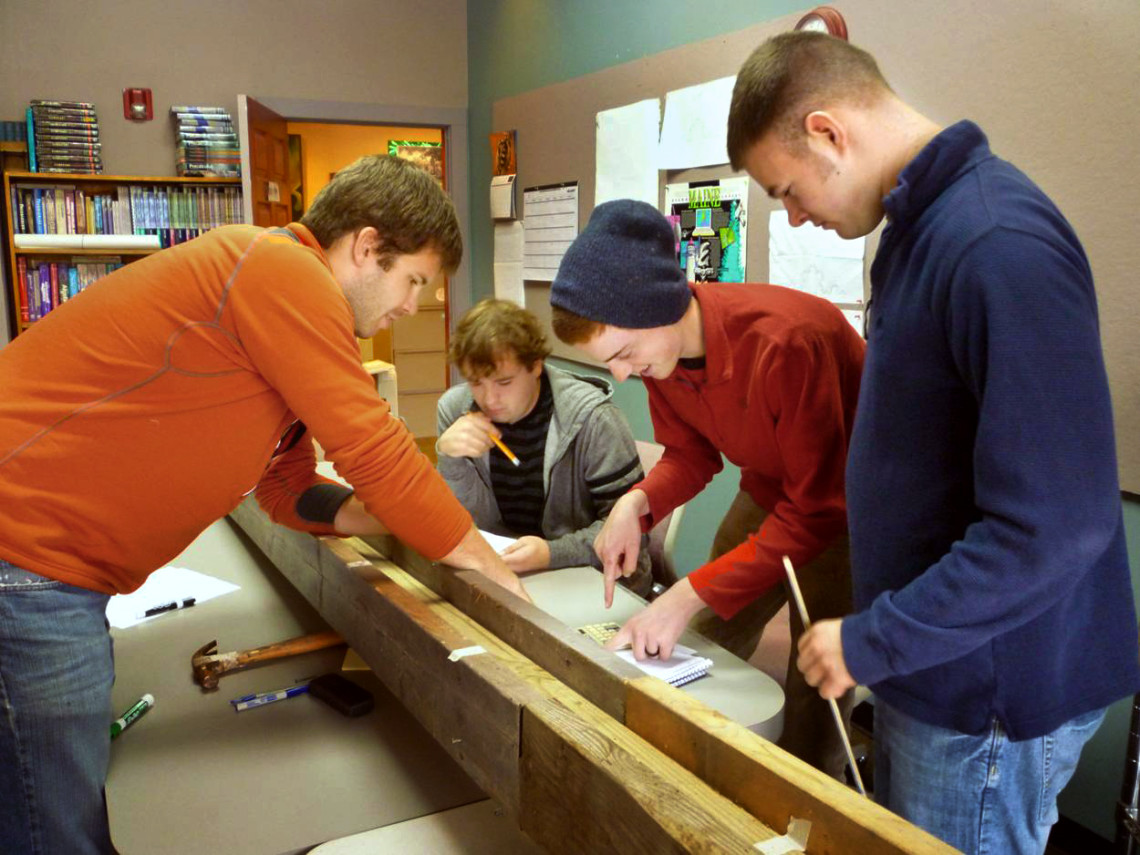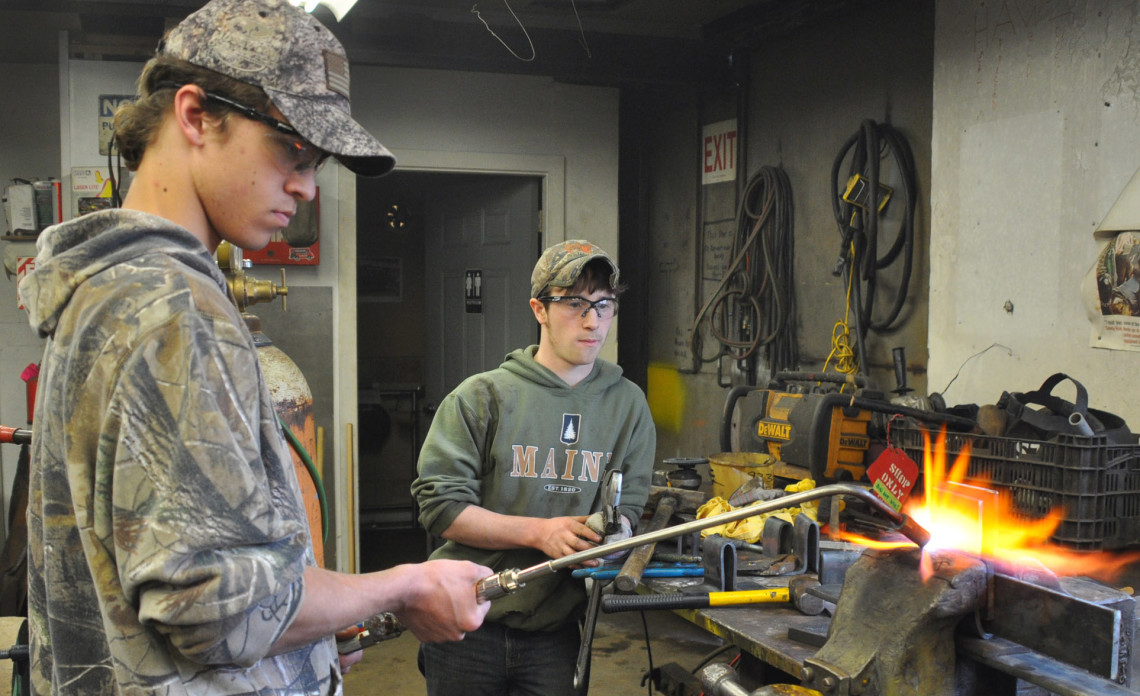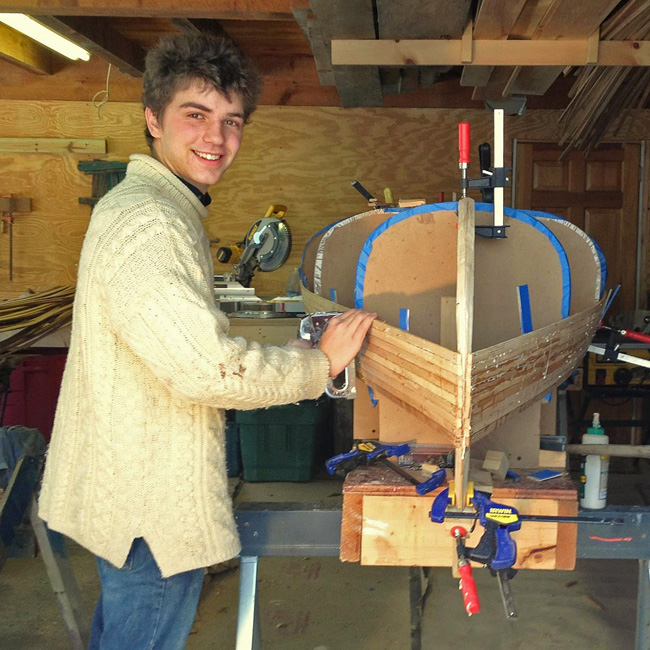I have learned more about myself here. I have learned how to stand up for myself to get the education that I need. And, as a bonus — I understand math now!
Olie C., TNS Graduate
Academic Excellence
In keeping with the State of Maine educational standards for grades K-12, our curriculum consists in part of core courses in the areas of English Language Arts, Social Studies, Science, Mathematics, Health and PE, Fine Arts, Visual & Performing Arts, Life & Career Ready, and World Languages.

A dynamic, student-driven education
At The New School, students learn how to take charge of their education. Electives at TNS vary widely and are informed by students’ interests. Seminar-style classes, field studies, apprenticeships, and three-week intensives bring a depth of understanding that relatively few young people acquire. Courses at TNS are often interdisciplinary and include real work in the community, such as learning chemistry and biology while restoring a local wetland. Our course offerings are designed to build confident, accomplished, and self-directed learners.
Together with faculty advisors, new students discuss different ways of learning to discover their own learning styles. We work with your student to develop their independent study and research skills. Every student meets weekly with a faculty advisor who helps them document and assess work, troubleshoot challenges, build portfolios, and explore post-graduate careers and studies.
Learning throughout the local community
 Apprenticeships and independent study courses with local artisans, non-profit organizations, and businesses are commonplace. The New School has a wide network of community members who act as mentors to students, providing relationships with significant adults, and the chance to experience learning in a living context. Recent independent study courses have included alternative energy engineering, early childhood development at local elementary schools, organic gardening with local farmers, and veterinary medicine and equestrian science.
Apprenticeships and independent study courses with local artisans, non-profit organizations, and businesses are commonplace. The New School has a wide network of community members who act as mentors to students, providing relationships with significant adults, and the chance to experience learning in a living context. Recent independent study courses have included alternative energy engineering, early childhood development at local elementary schools, organic gardening with local farmers, and veterinary medicine and equestrian science.
During their final year at TNS students participate in weekly senior seminars with their advisors to prepare them for graduation requirements, develop portfolios, apply and schedule visits to colleges, or explore and transition to careers.
Senior projects launch post-graduate careers

A senior project is a significant undertaking for students during their final year. Projects requires a minimum of two hundred hours and may take place on campus or remotely. Projects are reviewed by a committee of at least seven people, including parents, peers, a faculty advisor, and others chosen by the student. The student must explicitly show how the project reflects the state’s and the school’s guiding principles of being a clear and effective communicator, a self-directed and lifelong learner, a creative and practical problem solver, a responsible and involved citizen, and an integrative and informed thinker.
A few examples of Senior Projects:
- Xander built a beautiful cedar strip canoe for exploring Maine’s rivers.
- Jade travelled to Guatemala to help Mayan villages build efficient cooking stoves, then upon her return, she built an outdoor brick pizza oven, a staple of The New School.
- Jared designed a new parking lot for the school, including a rain garden that drains water from the parking lot. He selected and planted all the native plants for the garden.
- Aleah produced, directed, acted, and spearheaded fundraising and publicity for a public performance of The Vagina Monologues, reflecting her passion for theater and women’s issues.
- Tom and Elena spent four months in Peru working in an orphanage to increase their understanding of people in poverty. This led to careers in international relations: Tom for an international educational exchange non-profit, Elena for travels and studies in China.
- Nate created a cookbook, which included stories about the people who contributed their favorite recipes. This was a gateway to travelling and working on organic farms across the country.